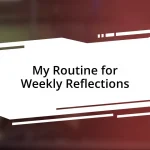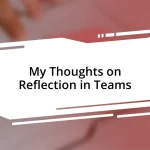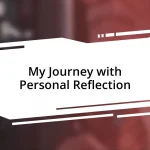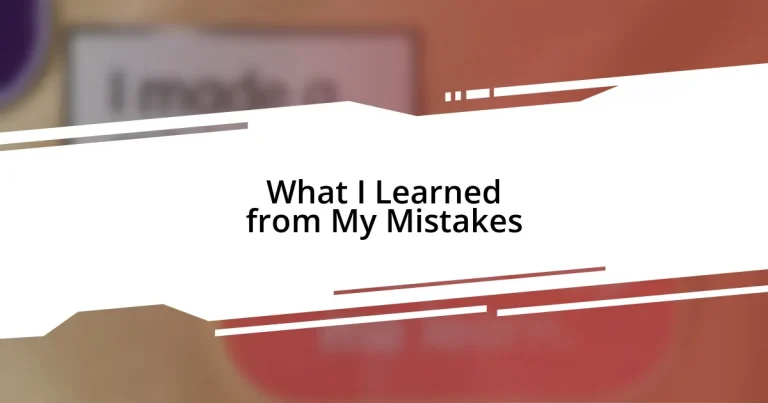Key takeaways:
- Mistakes are valuable learning opportunities that foster growth and self-discovery, often teaching more than successes.
- Recognizing and analyzing past mistakes can reveal patterns and emotional triggers, leading to improved decision-making and collaboration.
- Implementing strategies like post-mortem analyses and setting manageable goals can prevent future mistakes and enhance project outcomes.
- Embracing a mindset of gratitude and self-compassion towards mistakes promotes resilience and personal development.
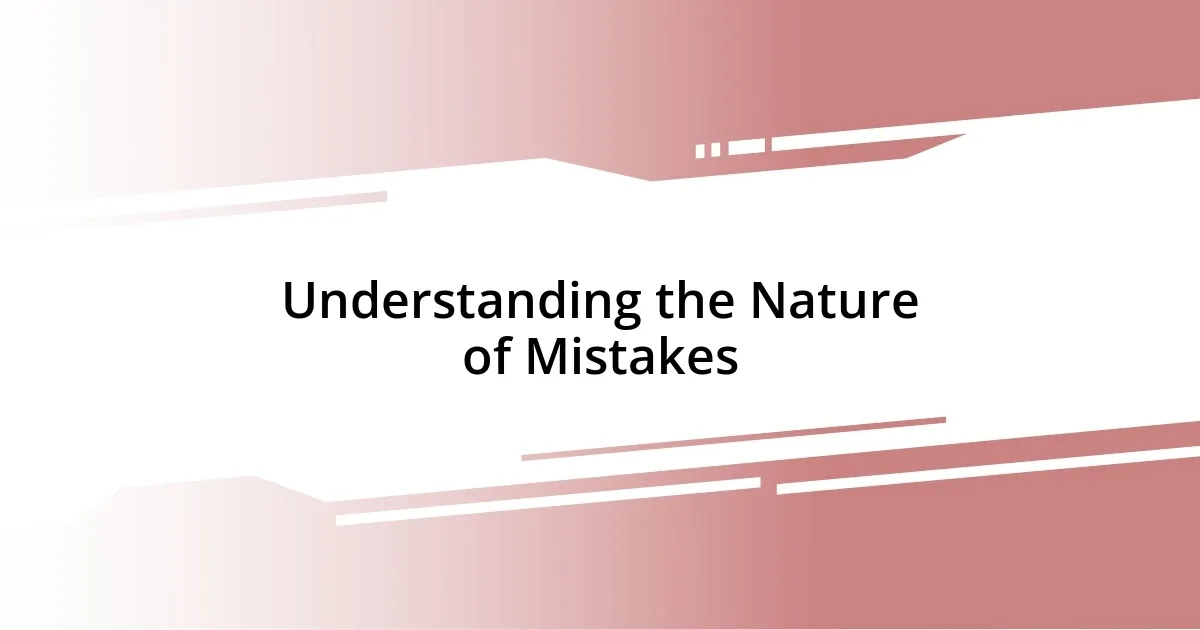
Understanding the Nature of Mistakes
Mistakes are often seen as failures, but I believe they hold incredible potential for growth. I remember a time when I completely mismanaged a team project. The stress was overwhelming, but looking back, that experience taught me more about leadership and collaboration than any success ever could. Would I trade the lessons learned for a flawless execution? Absolutely not.
Every mistake carries a lesson, wrapped in its own unique packaging. I once missed a crucial deadline because I didn’t delegate tasks effectively. The disappointment weighed heavily on me, but it forced me to recognize the importance of trust and communication within a team. Have you ever felt the sting of a mistake leading you to a breakthrough? That’s the magic of it all.
Embracing mistakes can be uncomfortable, but it’s a personal journey I’ve found invaluable. It’s like stumbling upon a hidden path in the woods that leads to a treasure trove of insights. After all, aren’t our blunders the real guides in our journey of self-discovery? Each mistake has its own story, contributing to the tapestry of who we are and who we aspire to be.
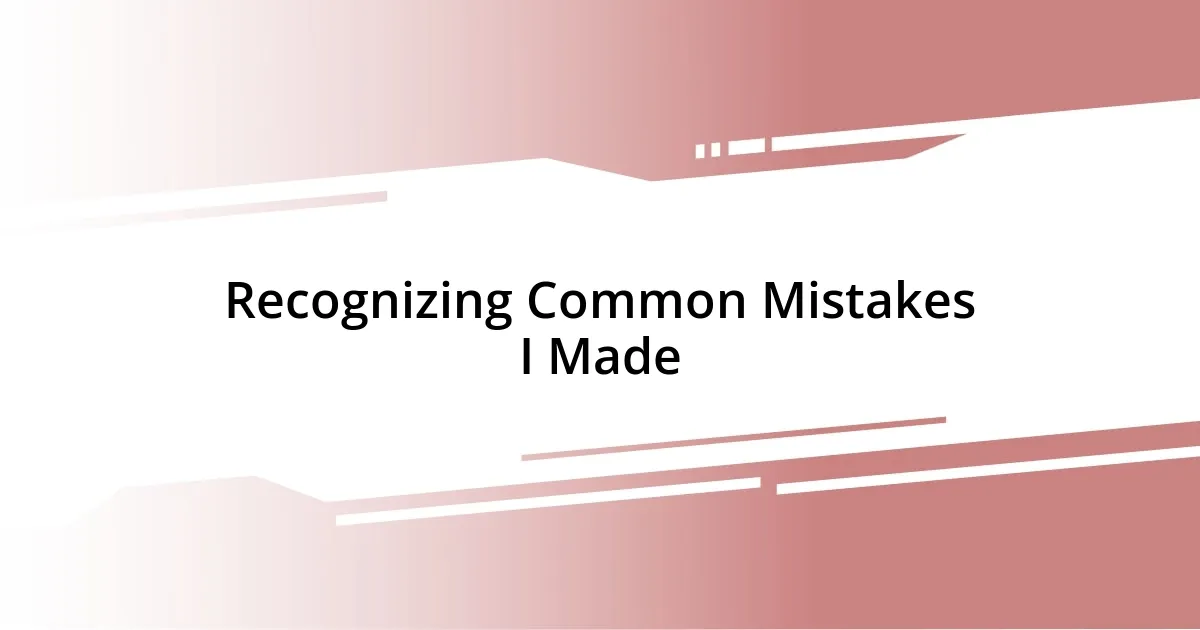
Recognizing Common Mistakes I Made
Recognizing the common mistakes I made isn’t just a matter of reflecting on the past; it’s about understanding how those missteps shaped my approach today. For instance, early in my career, I frequently overlooked the importance of asking for feedback. I thought I could handle everything solo, but that only led to repeated errors that could have been avoided. I learned that seeking input can transform a mediocre outcome into something truly remarkable.
Here are a few mistakes that stood out to me:
- Underestimating the Value of Collaboration: I often thought I could tackle projects on my own, which led to burnout and missed opportunities for innovation.
- Ignoring Metrics for Success: Initially, I didn’t track my progress effectively. This left me blind to what was working and what wasn’t.
- Fear of Delegating: I struggled to let go of control, which not only slowed progress but also hindered team growth.
- Rushing Decisions: Impatience led me to make snap decisions that often backfired. Taking a moment to think has since become a priority.
- Avoiding Difficult Conversations: I shied away from addressing issues directly, which only allowed small problems to fester.
Each of these experiences serves as a reminder that recognizing my mistakes isn’t about dwelling on them; rather, it’s about embracing the lessons they carry. I can still vividly remember the knot in my stomach before I decided to finally ask a colleague for help, a moment that marked a profound shift in how I approached challenges.
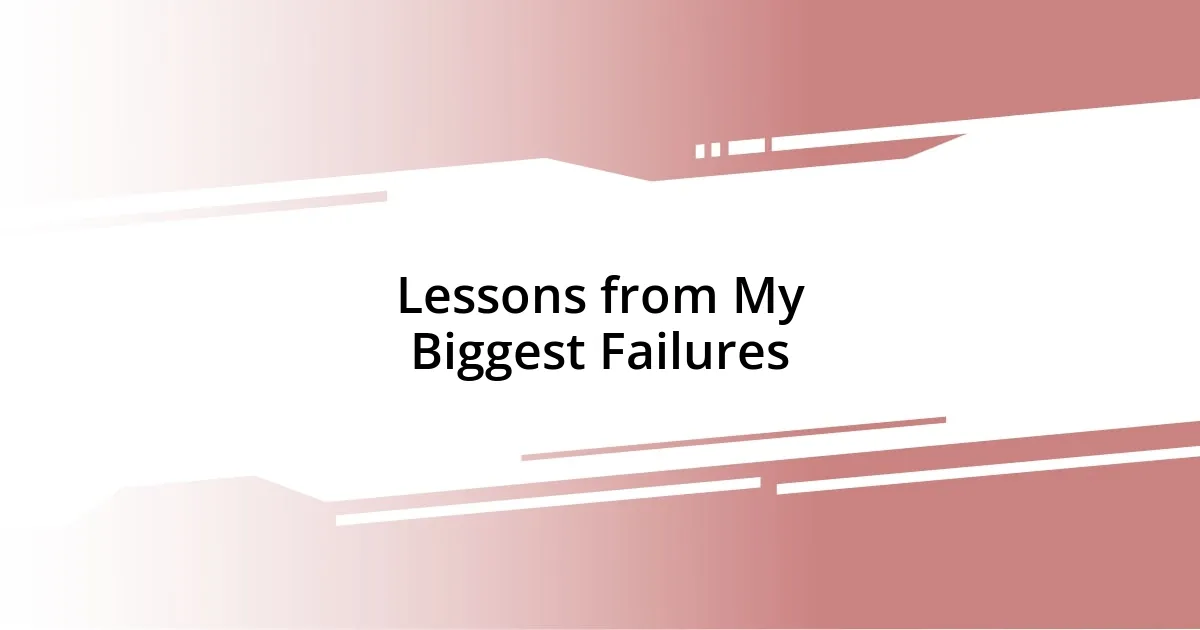
Lessons from My Biggest Failures
Each failure I’ve encountered has a unique story that ultimately taught me invaluable lessons. I remember missing a critical presentation because I insisted on preparing alone. The embarrassment was palpable, yet it opened my eyes to the value of collaboration. Now, I actively seek partners in my projects, realizing that diverse perspectives often lead to richer outcomes. Have you ever hesitated to invite others into your process? I can assure you, sharing the responsibility lightens the load and enhances creativity.
Another significant lesson emerged from a project I underestimated. I plunged ahead without adequate research, believing my past successes in similar ventures would yield the same results. That error cost me both time and resources, but it taught me the importance of thorough planning. I’ve learned to take a step back now, assessing the landscape before committing. It’s made a difference in my decision-making, and I seldom bypass this crucial step anymore. Transitioning from a reactive mindset to a proactive approach has been a game-changer in my work life.
Lastly, I vividly recall a moment when I miscommunicated a vision to my team. The resulting confusion not only upset the workflow but also strained relationships. This failure taught me the importance of clear communication and empathy. Since then, I make it a point to check in with my team regularly. How often do you ensure clarity in your discussions? It’s become a priority for me to create an environment where questions are welcomed and team members feel empowered to voice their thoughts, transforming potential misunderstandings into opportunities for connection.
| Lesson | Experience |
|---|---|
| Collaboration is Key | Missing a presentation due to not seeking help showed me the strength in working together. |
| Thorough Research Matters | Jumping into a project without research cost time and resources, guiding me to prioritize planning. |
| Clear Communication | Miscommunicating a project vision highlighted the need for clarity and empathy with my team. |
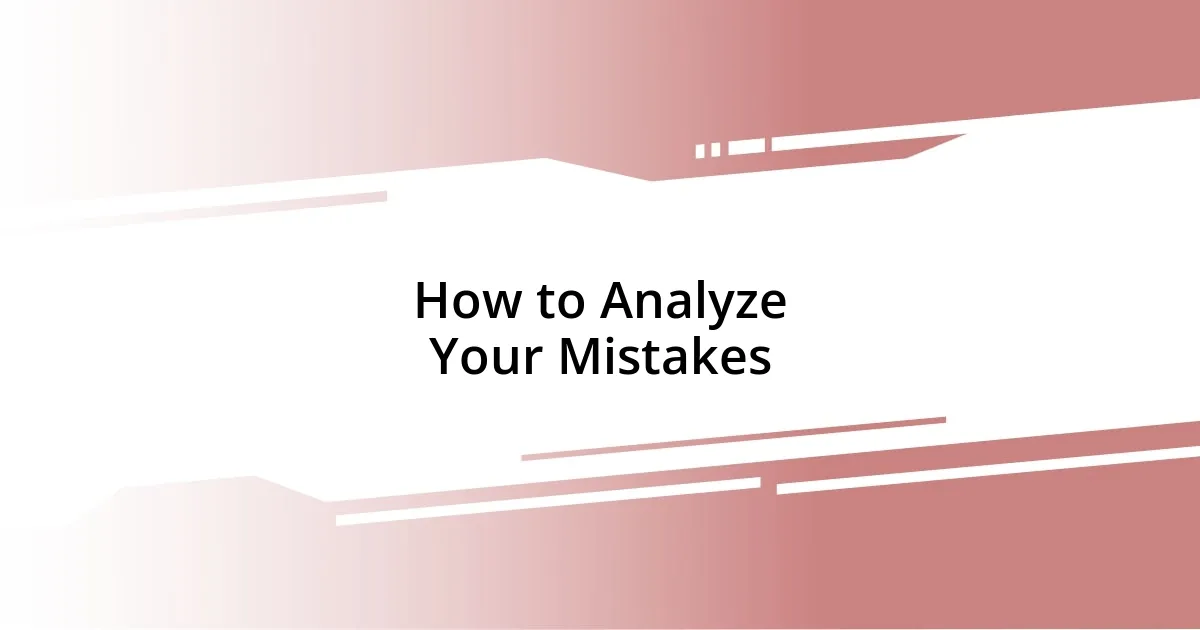
How to Analyze Your Mistakes
Analyzing mistakes isn’t just about identifying what went wrong; it’s a deep dive into the ‘why’ behind those missteps. I remember reviewing a project where I mismanaged timelines. Instead of blaming external factors, I confronted my own tendency to procrastinate. This reflection allowed me to create a structured timeline for future projects, ensuring I remain accountable. Have you ever considered how your habits might contribute to your mistakes?
Another crucial part of this analytical process is recognizing patterns in your errors. For instance, I noticed that I often rushed into decisions when I was overwhelmed. I started journaling these moments to pinpoint what triggered my impatience. By understanding the emotional roots of my decisions, I’ve been able to pause and reassess before taking action. Why do you think we sometimes act impulsively in stressful situations?
Finally, I’ve found value in discussing my mistakes with trusted colleagues. I once shared my experience of failing to meet a deadline because I didn’t communicate my struggles. Their insights helped me realize the importance of being transparent. This openness not only improves my approach to tasks but also strengthens relationships. Have you tried sharing your missteps with someone? It can be a powerful way to gain clarity and support.
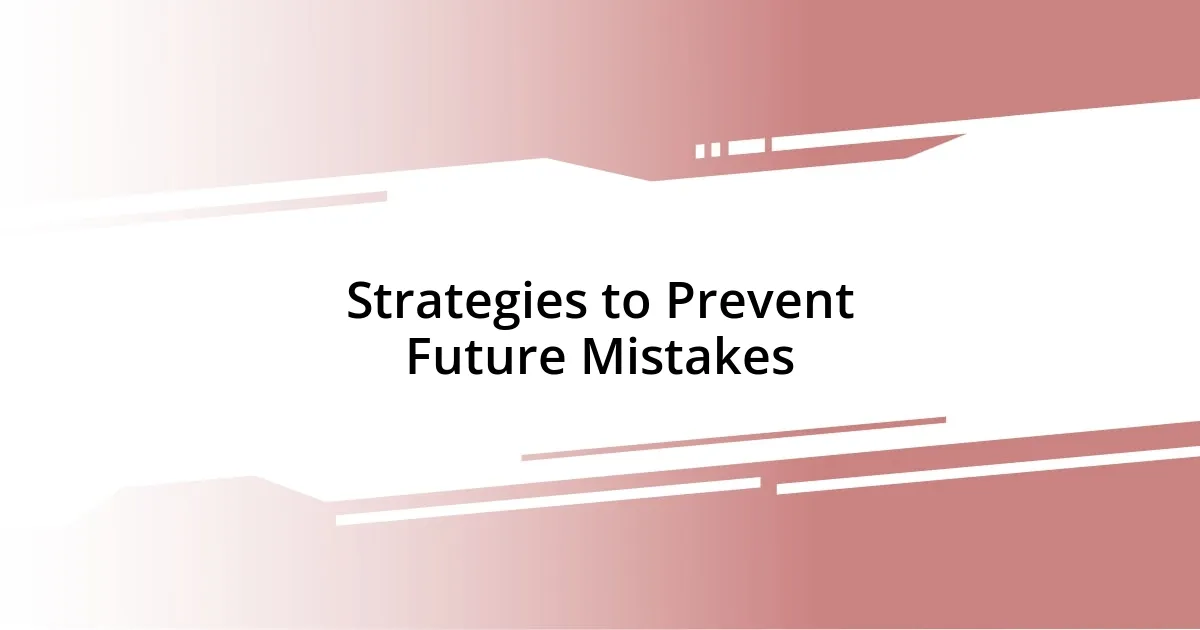
Strategies to Prevent Future Mistakes
One effective strategy that I’ve found invaluable is creating a post-mortem analysis after every project. After a significant campaign that didn’t meet expectations, I brought my team together to dissect what happened. It was emotional at first; no one wants to relive failures. However, discussing our missteps openly transformed our fear into learning. I realized that identifying specific fail points led to tangible solutions, and now we meet regularly to reflect on our successes and setbacks. Have you considered how a simple discussion could unlock insights in your own work?
Another practice I adopted is establishing clear, manageable goals at the outset of every endeavor. I once embarked on a large initiative, hoping to multitask and cover various ground quickly. But I quickly became overwhelmed and lost focus, ultimately resulting in frustration and incomplete tasks. Now, I set smaller milestones and celebrate each achievement along the way. This approach not only keeps me motivated but also allows me to course-correct quickly if I stray off track. Do you ever set yourself too many goals at once?
Finally, I’ve embraced the power of self-compassion in the face of mistakes. Early in my career, I was my harshest critic, dwelling on errors rather than learning from them. I transformed my mindset after a friend shared how their kindness to themselves in failure allowed them to bounce back stronger. Now, I remind myself that everyone stumbles, and it’s part of growth. This shift has made me more resilient and has enabled me to face challenges with a clear head. How do you treat yourself when you make a mistake? Maybe it’s time to give yourself the grace you deserve.
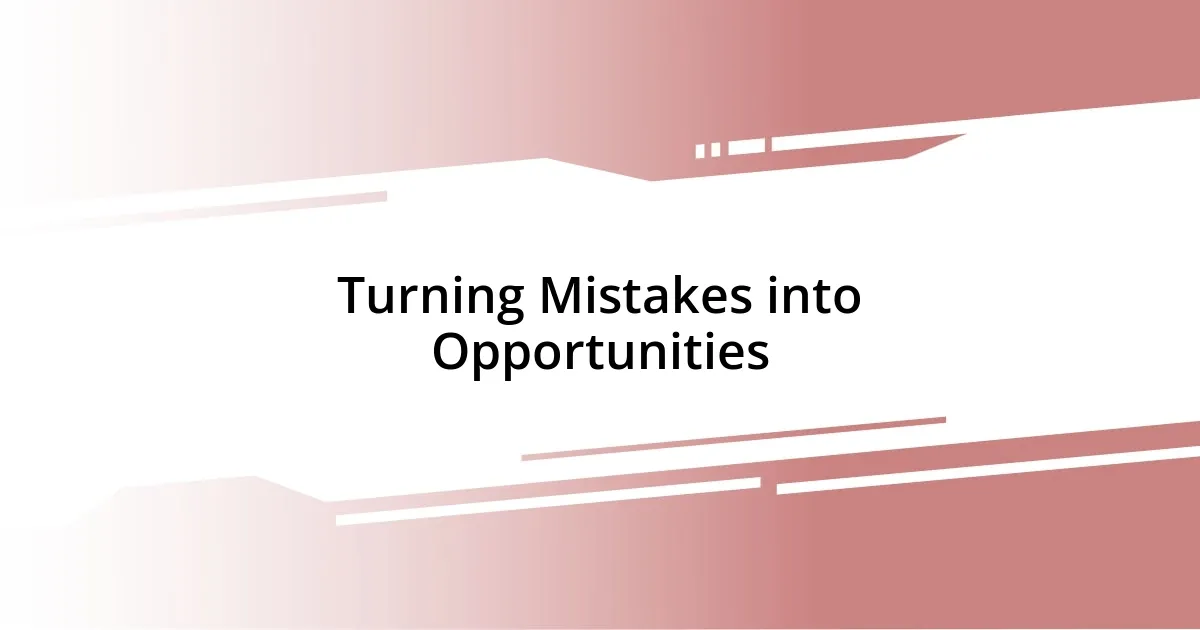
Turning Mistakes into Opportunities
When I look back at some of my biggest mistakes, I realize they were often disguised as opportunities waiting to be uncovered. For instance, there was a time I miscalculated a budget and faced the consequences of a strained relationship with a client. Initially, I was embarrassed and anxious about the fallout, but it ultimately pushed me to rethink my budgeting process. I began to implement a double-check system, which not only improved accuracy but also deepened my professional integrity. Have you ever experienced a blunder that ended up reshaping your approach?
I also remember a project that fell flat because I overlooked feedback from my team. At first, I felt defensive; after all, I thought I had everything figured out. However, when I sat down with my team to discuss what went wrong, their insights were eye-opening. This experience taught me that valuing diverse perspectives can transform setbacks into stepping stones for future success. It’s fascinating how a moment of vulnerability can lead to such meaningful growth. Have you ever hesitated to seek input from others, only to realize it could have saved you time and effort?
Looking at my missteps as learning moments has changed my perspective entirely. After misunderstanding a client’s needs, which resulted in an unsatisfactory deliverable, I felt disheartened. Instead of wallowing, I reached out to the client for an honest conversation about the oversight. This willingness to engage not only salvaged the relationship but also allowed me to better understand how to align my work with client expectations moving forward. It struck me how crucial it is to turn a moment of failure into a commitment to improvement. What lessons have your mistakes taught you that you might have otherwise overlooked?
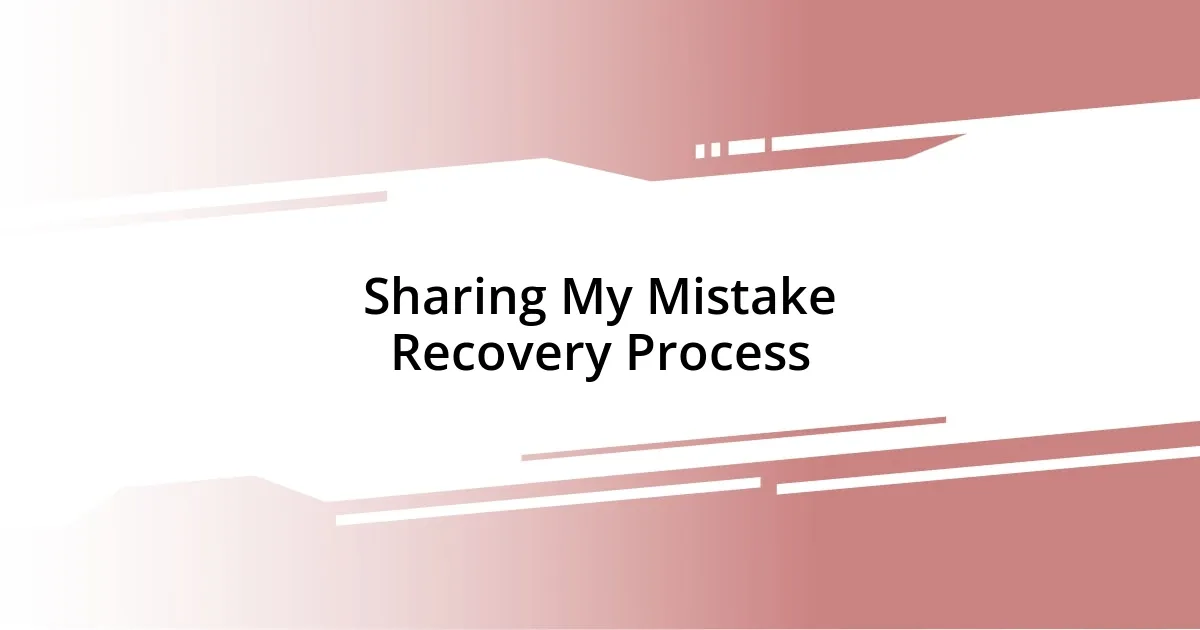
Sharing My Mistake Recovery Process
When I encounter a mistake, my recovery process begins with a moment of reflection. I remember a time when I delivered a presentation that completely missed the mark. Feeling defeated, I took a step back to analyze the feedback and the preparation that led up to it. That initial sting of embarrassment transformed into a powerful learning opportunity. Have you ever felt that wave of disappointment turn into motivation to improve?
The next step for me is action based on my insights. After realizing my presentation lacked clarity, I sought advice from a trusted colleague. Their perspective helped me refine my message, which not only strengthened my confidence but also enhanced my ability to communicate effectively. It’s remarkable how collaboration can light the path to recovery. Have you reached out for support when facing a setback and found it made a difference?
Lastly, I practice gratitude for the lessons learned through each mistake. There was a challenging time when I mismanaged my time on a critical project, leading to rushed work and an unhappy client. Initially, I felt a surge of shame, but as I worked to rectify the situation, I grew grateful for the experience. It taught me the importance of balance and the significance of setting realistic timelines. Reflecting on past errors has become a habit that fuels my personal growth. What changes might you see in yourself if you embraced your mistakes as valuable lessons?







